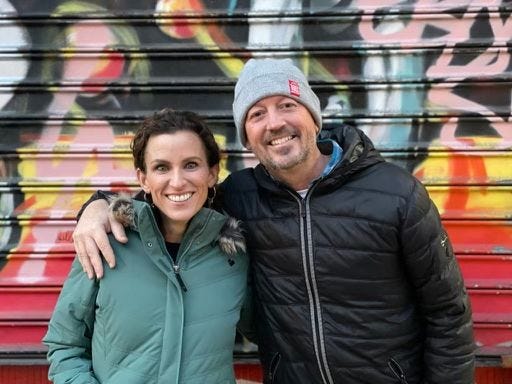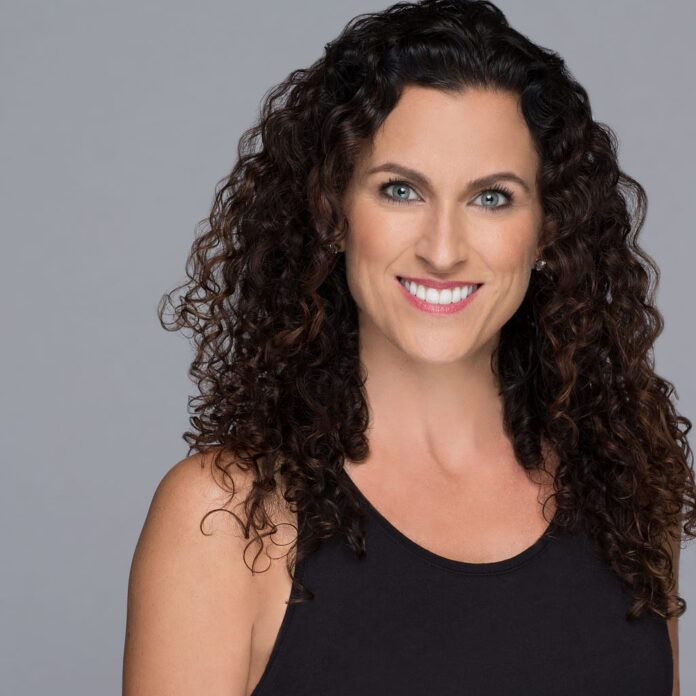Mental Wellness Mastery: Mental Health Expert Dr Sarah Sarkis Of Exos On Everyday Life Hacks For Optimal Mental Wellness
An Interview With Eden Gold
Practice self-compassion: People are very hard on themselves. Universally. Learn how to be humane, kind, and compassionate to yourself and watch how your psychological life transforms. Additionally, when you transform your relationship with yourself, you change all your interpersonal dynamics as well.
In our modern, fast-paced society, mental wellness is a crucial aspect of leading a fulfilling life. However, for many people, achieving and maintaining good mental health can be a challenging task, with obstacles such as stress, anxiety, depression, and more. That’s why it’s essential to have practical and accessible strategies for mental wellness that can help build resilience, emotional intelligence, and overall well-being. As part of this series, we had the pleasure of interviewing Dr. Sarah Sarkis, Exos.
By day, Dr. Sarkis is a licensed psychologist, a certified executive coach, and the Senior Director of Performance Psychology at Exos. Occasionally, you’ll also find her moonlighting as a writer and keynote speaker.
Dr. Sarkis has spent 20-plus years in the trenches, exploring every corner of the human psyche. Her passion and focus these days is working with CEOs, athletes, professional coaches, and other executives striving to achieve moonshot dreams. In a nutshell, she considers herself a human performance hybrid: part shrink, part coach, part jedi of the unconscious.
Thank you so much for joining us in this interview series. Before we dive into our discussion about cultural sensitivity, our readers would love to “get to know you” a bit better. Can you share with us the backstory about what brought you to your specific career path?
I studied psychology as an undergraduate at Georgetown University. I knew I wanted to be a psychologist from my freshman year of college and I became obsessed with the human mind. Initially, I was drawn to the study of forensic psychology, specifically in sociopathy and Narcissistic Personality Disorder (NPD). For decades I have also had a private practice where I work with adults in long-term, insight-oriented therapy. My interest in well-being, performance, and positive psychology evolved over the last 15 years. I woke up one day and realized that in over 10 years of academic training, I had never taken a single class on happiness, contentment, or the science of well-being. This changed everything for me.
Can you share the most interesting story that happened to you since you started your career?
I don’t speak about my clients publicly because I believe confidentiality is the hallmark feature of ethical, trustworthy coaching.
But what I can say is that working in the trenches of the human condition has been one of the greatest privileges of my life (only to be topped by motherhood). I cannot put into words the meaning and purpose this has given to my life. The human animal is so fascinating, beguiling, and full of twists and turns. Every day is interesting in my world.
Additionally, deciding to expand outside of my private practice to pursue coaching and join Exos has been a delightful (and totally unexpected) turn of events. In the past four years since joining Exos (first as a consultant), we have re-imagined sustainable high performance at the highest level. Unraveling the riddle of how to perform at the highest level without sacrificing our well-being has been a humbling and rewarding experience. And working with the team of scientists, coaches, and executives I get to co-create with has been a real joy.
You are a successful individual. Which three character traits do you think were most instrumental to your success? Can you please share a story or example for each?
- Curiosity: About twenty years ago, I made a conscious and intentional decision that I was going to double down on curiosity as my secret sauce. I vowed to remain curious about myself, others, systems, processes, and learning.
- Listening: Over the decades in the trenches with thousands of people, I have had to really learn how to listen, and listen differently. I have spent hundreds of hours training myself how to listen, ask questions, and convey empathy. These skills, it turns out, are invaluable and rare.
- Self-awareness: I can’t ask others what I am unwilling to do myself. Invest in deeply knowing yourself.
Ok, thank you for that. Let’s now jump to the primary focus of our interview about mental wellness mastery. What is one often overlooked daily habit that can significantly improve one’s mental wellness?
A few noteworthy things here:
- When it comes to wellness, there is no mastery. We are all in flux all the time. And sometimes our lives are designed to be stressful (think death, illness, divorce, financial stress). I caution people in thinking you can ever master wellness or well-being. That typically sets us up for a sense of failure and disappointment.
- That being said, some of the habits we can practice in order to offset stress and strive for wellness are (please note, all of these are free):
- Guard your sleep. You know the drill, dial in your tech hygiene, limit alcohol and caffeine, sleep in cold, dark, and quiet environments.
- Get outside for morning and afternoon sunlight.
- Move your body more days than not.
- Practice stillness (meditate).
- Connect with people.
How do you recommend individuals recalibrate their mental wellness after experiencing a significant setback or failure?
The single best thing you can do to calibrate from a significant setback or failure is to reframe failure as a necessary step in the learning process. Yes, it sucks to fail. It feels horrible to not succeed or be rejected in some way. But the truth is, the vast majority of our lives are spent in the “failures,” the near misses, the second place status, and worse, in outright losses. The best of the best “win” far less than they lose. But they bring curiosity, humility, and self-reflection to the process and that turns everything into a learning experience.
Failures are part of the journey towards success. Just keep going.
In your experience, what is a common misconception about mental health that hinders people from seeking help or improving their wellness?
- That your mental health is largely inherited from your genes.
- That you cannot change your “psychology.”
Can you share a transformative moment or client story that highlights the power of a specific mental wellness strategy?
I’m not sure I have a transformative experience to share, because most of the time change and growth is a grind, painstakingly slow in fact. As such, with many of these types of strategies for mental wellness, I encourage people to view them as daily practices that we engage in regardless of whether or not “we believe they are working.”
What I find typically unfolds for people is that gradually, over 6–12 months of consistent practice of these types of strategies, people’s relationship with themselves starts to shift. They approach their anxieties and worries differently. People have more insight, impulse control, and the ability to reflect and regulate. What is most encouraging to see is that people change their sense of personal agency over their own well-being. We don’t have to wait for permission to change our well-being; we do not have to hope external factors change in order to make our well-being a priority. More than transformation, I see people practicing, day in and day out, ways to become more resilient. This is the best testimony to the human spirit. Transformation suggests that a light bulb goes off one day and viola, you are suddenly “well.” But in reality, most people, present company included, simply grind it out in their daily practices.

Based on your experience and research, can you please share “5 Everyday Life Hacks For Optimal Mental Wellness?”
- Get your ZZZZ’s: If you did nothing else, fix your sleep this year.
- Move your body, more days than not. At least 15–30 minutes.
- Limit or eliminate alcohol from your daily routine.
- Practice self-compassion: People are very hard on themselves. Universally. Learn how to be humane, kind, and compassionate to yourself and watch how your psychological life transforms. Additionally, when you transform your relationship with yourself, you change all your interpersonal dynamics as well.
- Meditate: I know, I know. I get universal pushback on this one all the time. But this is the best return on investment for your central nervous system. Learn how to use breath, visualization, stillness, etc to influence your central nervous system.
*Please note- there are no hacks. It all takes intentionality and work*
What role does technology play in mental wellness today, and how can individuals leverage it positively without exacerbating mental health issues?
Generally speaking, the more intentional and conscious you are with your technology boundaries, the better.
For example, have “no tech time” in your household, where everyone is off of tech for a certain amount of time. Don’t sleep with tech in your bedroom. Turn it off two hours ahead of when you want to go to sleep.
If you are struggling with a mental health concern, seriously limit your access to social media.
Examples of healthier ways to use tech:
- Schedule a Zoom call with a family or friend who you have wanted to catch up with but haven’t in a while.
- Listen to a podcast while you go walking.
- Use YouTube to access thousands of free meditations.
You are a person of great influence. If you could start a movement that would bring the most amount of good to the most amount of people, what would that be? You never know what your idea can trigger.
I am not really the “start a movement” type of person, but I do remind people of a few important things when it comes to psychological health and growth:
- Don’t wait to be ready. Just start.
- You are not late; you are right on time.
- Start again, begin anew, tomorrow is a new day.
- Rinse and repeat.
How can our readers further follow you online?
Follow our Exos journey by checking out our website or our social channels on Instagram, LinkedIn, Twitter/X, YouTube, and Facebook. Feel free to connect with me on LinkedIn, Instagram, and Facebook and check out my website.
Thank you for these fantastic insights! We wish you continued success and good health.
About The Interviewer: Eden Gold, is a youth speaker, keynote speaker, founder of the online program Life After High School, and host of the Real Life Adulting Podcast. Being America’s rising force for positive change, Eden is a catalyst for change in shaping the future of education. With a lifelong mission of impacting the lives of 1 billion young adults, Eden serves as a practical guide, aiding young adults in honing their self-confidence, challenging societal conventions, and crafting a strategic roadmap towards the fulfilling lives they envision.
Do you need a dynamic speaker, or want to learn more about Eden’s programs? Click here: https://bit.ly/EdenGold.
Mental Wellness Mastery: Mental Health Expert Dr Sarah Sarkis Of Exos On Everyday Life Hacks For… was originally published in Authority Magazine on Medium, where people are continuing the conversation by highlighting and responding to this story.


